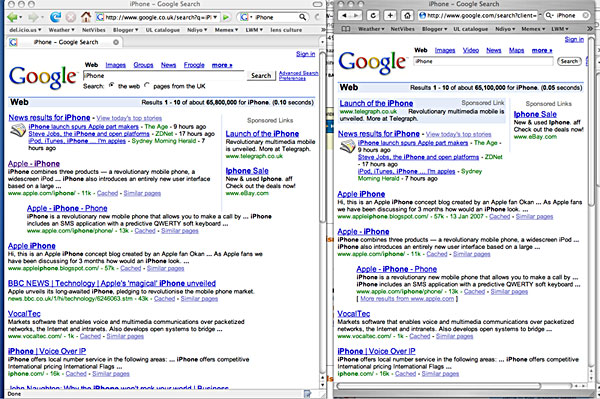Nice column by Randall Stross…
STEVE JOBS, Apple’s showman nonpareil, provided the first public glimpse of the iPhone last week — gorgeous, feature-laden and pricey. While following the master magician’s gestures, it was easy to overlook a most disappointing aspect: like its slimmer iPod siblings, the iPhone’s music-playing function will be limited by factory-installed “crippleware.”
If “crippleware” seems an unduly harsh description, it balances the euphemistic names that the industry uses for copy protection. Apple officially calls its own standard “FairPlay,” but fair it is not.
The term “crippleware” comes from the plaintiff in a class-action lawsuit, Melanie Tucker v. Apple Computer Inc., that is making its way through Federal District Court in Northern California. The suit contends that Apple unfairly restricts consumer choice because it does not load onto the iPod the software needed to play music that uses Microsoft’s copy-protection standard, in addition to Apple’s own. Ms. Tucker’s core argument is that the absence of another company’s software on the iPod constitutes “crippleware.”
I disagree. It is Apple’s own copy-protection software itself that cripples the device…

